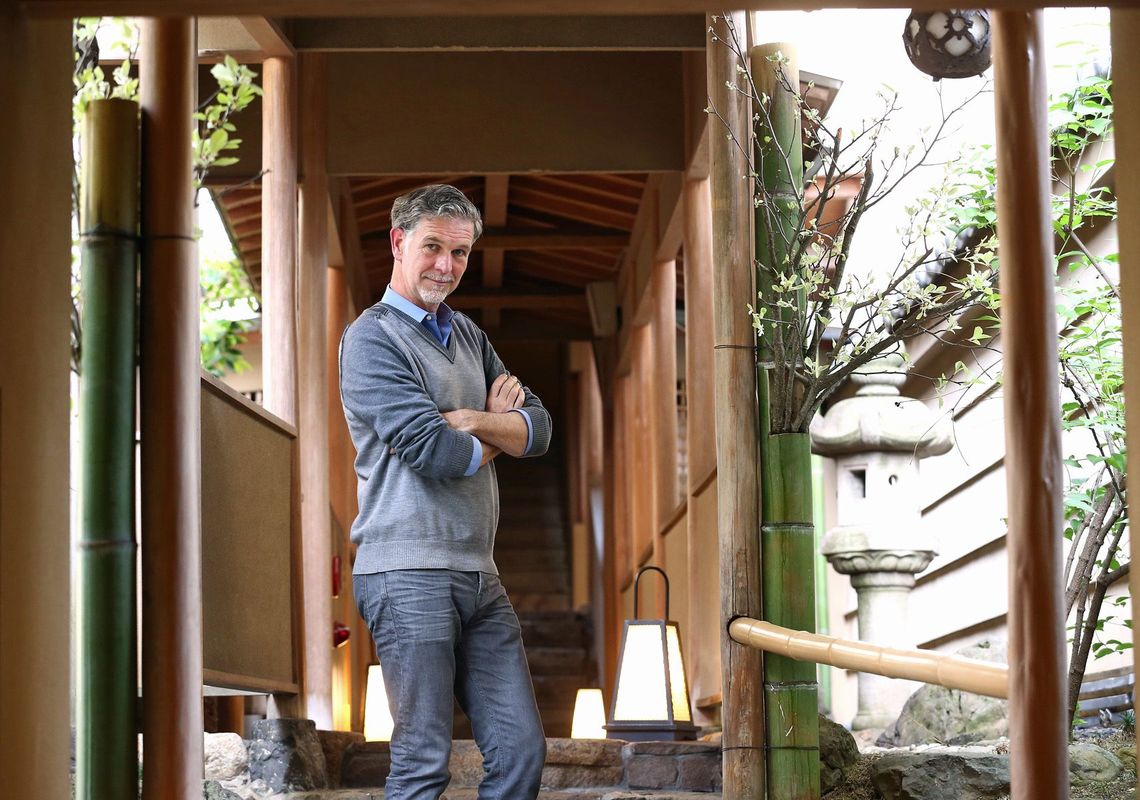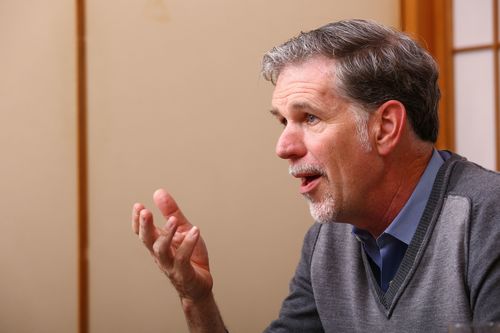
――How do you keep yourself competitive and innovative?
I think it’s people's passion for the service. When I’m in an airport wearing a Netflix cap, people come up and say, “Oh, I love Netflix,” “I was just watching Daredevil,” or “I was just watching Bloodline.” They’re so passionate. That’s exciting. That’s what keeps us working long days. We get a lot of positive feedback from our customers.
――What’s the key to making your company competitive?
It’s to have big dreams, dreams that are hard but feel possible. Netflix dreams of connecting all the world’s people, making the best Japanese content available everywhere around the world, the best Danish television available to everybody, the best Argentine movies, the best of Hollywood, all of that content available everywhere.
Strategy for the Chinese market
――You are a board member of both Facebook and Microsoft. Do you think Facebook and Microsoft also have that kind of dream?

Absolutely. Yeah, they both want to make a difference in the world. It’s been good for me to learn from Microsoft and from Facebook. Both of those companies are more global than Netflix. Microsoft reaches every country in the world. Facebook reaches every country but China. We learn a lot about how to continue to innovate in each country.
――The Chinese market is the toughest market in the world. Do you have a strategy for approaching China?
Our strategy for now is to try to do a great job in Japan. If we’re successful in Japan, we could try later to tackle the more difficult market of China. We need to focus on doing a great job in every market like Japan.
――What do you think are the biggest hurdles there?
I’m not sure yet. Once we’re successful in Japan, then we’ll start to ask, “What about China? What about Taiwan? What about Vietnam, Indonesia, and the Philippines?” Many other markets will be good and difficult, but first we have to attract Japanese consumers. Japan has wealth, broadband Internet access, and the prevalence of credit and debit cards—so many good factors.
――Let’s talk about the technology side of Netflix. An interesting bit of data states that 75% of Netflix customers watch recommended content.
When people start with Netflix, they look for titles that they already know. Then, depending on what movies they choose, we can recommend more movies that they’re likely to love. The more we do that, the more they watch. Making those recommendations is very positive for us.
――I assume big data is also useful for producing content.
Exactly. Sixty million households all watching different shows generates a lot of data. We analyze that data to make Netflix work better for each individual through recommendations.
――House of Cards is a typical successful example.
That’s right. House of Cards was very expensive. Netflix and HBO were both bidding for it. We knew the show was going to be good, but we didn’t know if it would be good enough to warrant paying more than HBO. Examining all our data allowed us to say, “We think it will work. This show is likely to be a success.” Since then, House of Cards has been a huge success for Netflix.
"Leadership means just being yourself"
――Will linear TV disappear with the advancement of Internet TV?
Linear TV will decline every year for 20 or 30 years. I don't know if it will disappear, but no one will care. Think of it like the fax machine, which was very powerful 20 years ago. Everyone was really happy to have a fax machine, but then e-mail attachments came. New technology will replace the old. Internet TV is just starting to grow, and linear TV will decline over time.
――Are you conscious of creative destruction?
Yes. Think about the automobile replacing the horse or e-mail attachments replacing faxes. The cycle of technological revolution is very powerful in our society. We know that we are new today, but in 10, 20, or 30 years, somebody will try to replace Netflix with some new thing, and that’s what keeps it exciting. There’s always somebody looking to do it better.
We have to keep growing, to keep learning, to keep improving. For the next 10 or 20 years, we’ll focus on Internet TV, original content, and becoming global. We have big goals, big dreams.
――You are quite a low-key person. What is your philosophy?
Leadership means just being yourself, not letting success change you. If you had interviewed me in 1993, you would’ve seen me with a beard, but other than the beard, I was the same person I am now. The stock market goes up and down. We try not to base our satisfaction on those changes.

